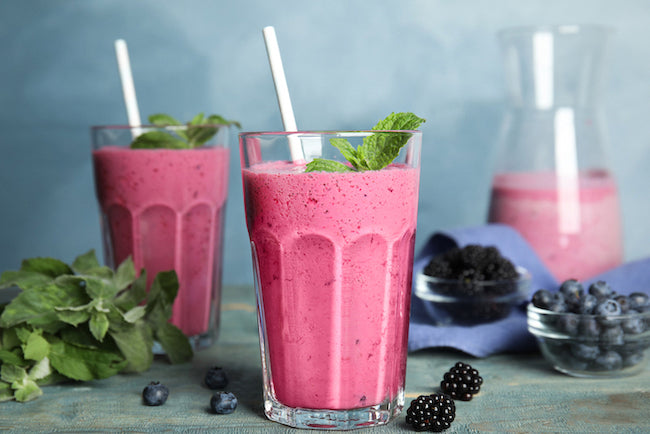
CBD for Seasonal Affective Disorder (SAD) & Winter Blues
Seasonal affective disorder, or SAD for short, is a type of depression that changes in a seasonal pattern, usually beginning and ending about the same time every year. Often referred to as “winter depression”, the symptoms of seasonal affective disorder are generally worse during the winter. Shorter days and decreased sunlight during the autumn and winter months can affect people’s biological clocks, along with decreasing serotonin and dopamine production.
Symptoms of SAD can vary, but some of the most common ones are persistent feelings of sadness or hopelessness, fatigue, oversleeping, and lack of energy. Those suffering from seasonal affective disorder often have difficulty concentrating, changes in appetite or weight, along with irritability.
It is not uncommon to experience a significant shift in your mood as the seasons change. If this is you, you are not alone. Seasonal affective disorder impacts about 3 to 6 million Americans, with the frequency and severity increasing the farther away you get from the equator.
Do not ignore seasonal affective disorder symptoms. Consult with a doctor to learn about whether medication would be an appropriate next step. Additionally, there are supplements and lifestyle changes you can take to give yourself small boosts to help combat the symptoms of seasonal affective disorder, including CBD.
CBD for Seasonal Affective Disorder
How CBD works to lift your mood
Used to treat a multitude of health issues, CBD is an effective and natural way to support your mood if you suffer from seasonal affective disorder. By interacting with your endocannabinoid system, CBD actively boosts levels of serotonin and dopamine production in your brain which helps combat the stress of SAD. Taking CBD for seasonal affective disorder may help you maintain emotional balance and mediate symptoms such as fatigue, anxiety, and depression.
Other ways CBD supports mental health
Helps regulate sleep
Anyone who has suffered from depression or anxiety knows that it can impact your sleep. Research shows that CBD can regulate serotonin levels, thus reducing fight or flight signals…aka anxiety in your brain and body. By decreasing these stressful signals, your body can attain the calm it needs to fall asleep and sleep deeply.
While you sleep, your body regenerates neurotransmitters in the brain, which is a critical process for your brain and body to function during the day. A regular dose of CBD can help you fall asleep and stay asleep, giving your body a better chance to fight off the symptoms of SAD.
CBD can boost concentration and focus
CBD can boost concentration and focus by targeting the CB1 and CB2 receptors that regulate neurotransmitter function, decrease anxiety, and promote feelings of calmness. By interacting with these receptors, CBD may help you achieve better concentration and focus.
Another way CBD can help increase your focus is by assisting with sleep. Sleep is a critical element to being able to concentrate. Focus, productivity, and overall well-being are affected by poor sleep, all of which CBD can help with.
Other Ways to Help With Seasonal Affective Disorder
Regular exercise
Anyone who suffers from seasonal depression can benefit from including regular exercise in their daily routine. Exercise releases endorphins, hormones that help reduce pain and increase positive feelings. You don’t need to train for a marathon in order to reap the benefits of exercise and lift your mood. Even 10 minutes a day of stretching, walking, yoga, or any enjoyable movement can help boost your mood. In addition to releasing natural uppers (aka endorphins), exercise increases your metabolism, which helps improve energy levels combatting one of the main symptoms of SAD.
Increase your intake of vitamin D through diet or supplements
Seasonal affective disorder most often occurs during winter months when exposure to Vitamin D through sunlight decreases. Supplementing with Vitamin D can help prevent and treat symptoms such as fatigue and low mood associated with SAD. A key nutrient for mental and physical health, increasing foods rich in this vitamin can be one of the best decisions for improving your health while experiencing seasonal affective disorder. Food choices like fatty fish, cod liver oil, egg yolks, mushrooms, and dairy are all options high in Vitamin D.
Light boxes and dawn simulators
Light therapy is a very common option for improving negative SAD symptoms. A light therapy box mimics sunlight, causing a chemical change in the brain that can lift your mood and ease SAD symptoms. If you are on the search for a light therapy option, chose one with as little UV light as possible that provides 10,000 lux of light exposure. Typical recommendations for light therapy include using the light box within the first hour of waking up for about 20 to 30 minutes.
Avoid alcohol and other depressants
Although many people use alcohol as a pick-me-up to make them feel better, it is actually a depressant. This term does not technically mean that alcohol makes you depressed, but it does slow down the activity of your brain and nervous system. Because of the way alcohol slows down brain activity, it reduces a person’s ability to make rational decisions and can also negatively affect emotional wellness.
Other depressants that inhibit the central nervous system include sedatives, hypnotics, and tranquilizers. Even though drinking alcohol might feel like a great escape from SAD symptoms, avoiding these depressants can help lessen SAD symptoms.
Meditation
Used for centuries to create a state of deep relaxation and release stress, meditation also increases serotonin levels, which is very helpful in the treatment of seasonal affective disorder. Often referred to as the “happy hormone”, serotonin is a mood-stabilizing hormone. When winter blues hit, a lack of serotonin can be one of the main culprits, so naturally increasing this hormone can be a massive benefit.
In severe cases, talk to your doctor about anti-depressants
If you are experiencing persistent symptoms with no relief, speak with your doctor about treatment options. Anti-depressants may help provide relief and can be combined with many of the other helpful tools provided in this article.
FAQ About Using CBD For Seasonal Affective Disorder
Can I use CBD alongside anti-depressants?
CBD has the potential to interact with certain medications, including anti-depressants. Therefore, it's important to consult with a healthcare professional.Your doctor can provide personalized advice based on your specific medical history and current treatment plan.
Can I mix CBD with caffeine?
Symptoms of seasonal affective disorder can include feelings of exhaustion, so it’s natural that you may want an extra cup of coffee in the morning. Good news, CBD is not known to have any significant adverse interactions with caffeine.
Does CBD have any side-effects?
CBD is widely considered to be safe, but like any supplement, it can have potential side effects. Some people may experience mild side-effects such as dry mouth, dizziness, changes in appetite, and diarrhea. To minimize the likelihood of side-effects, follow any instructions on the CBD product and start with a small dose to gauge how that specific amount interacts with your seasonal affective disorder symptoms and body on whole.
How do I know how much CBD to take for Seasonal Affective Disorder (SAD)?
Determining the right CBD dosage for Seasonal Affective Disorder (SAD) is a decision you’ll ultimately have to make for yourself. It's recommended to start with a low dose and gradually increase it until you find the optimal amount. For more insights, read this guide.
Can I take CBD any time of day?
Seasonal affective disorder can strike during both the morning and night but, thankfully, you don’t have to restrict when you use CBD. Because it does not create any drowsiness (if dosed appropriately), you can use it during the daytime without worry of it impairing your judgment or capabilities.

By Emily Wegener
With a unique background as an Integrative Nutrition Health Coach, Masters Degree in Teaching and experience in Psychology, Emily spends much of her time researching and trying out new holistic healing modalities.



